











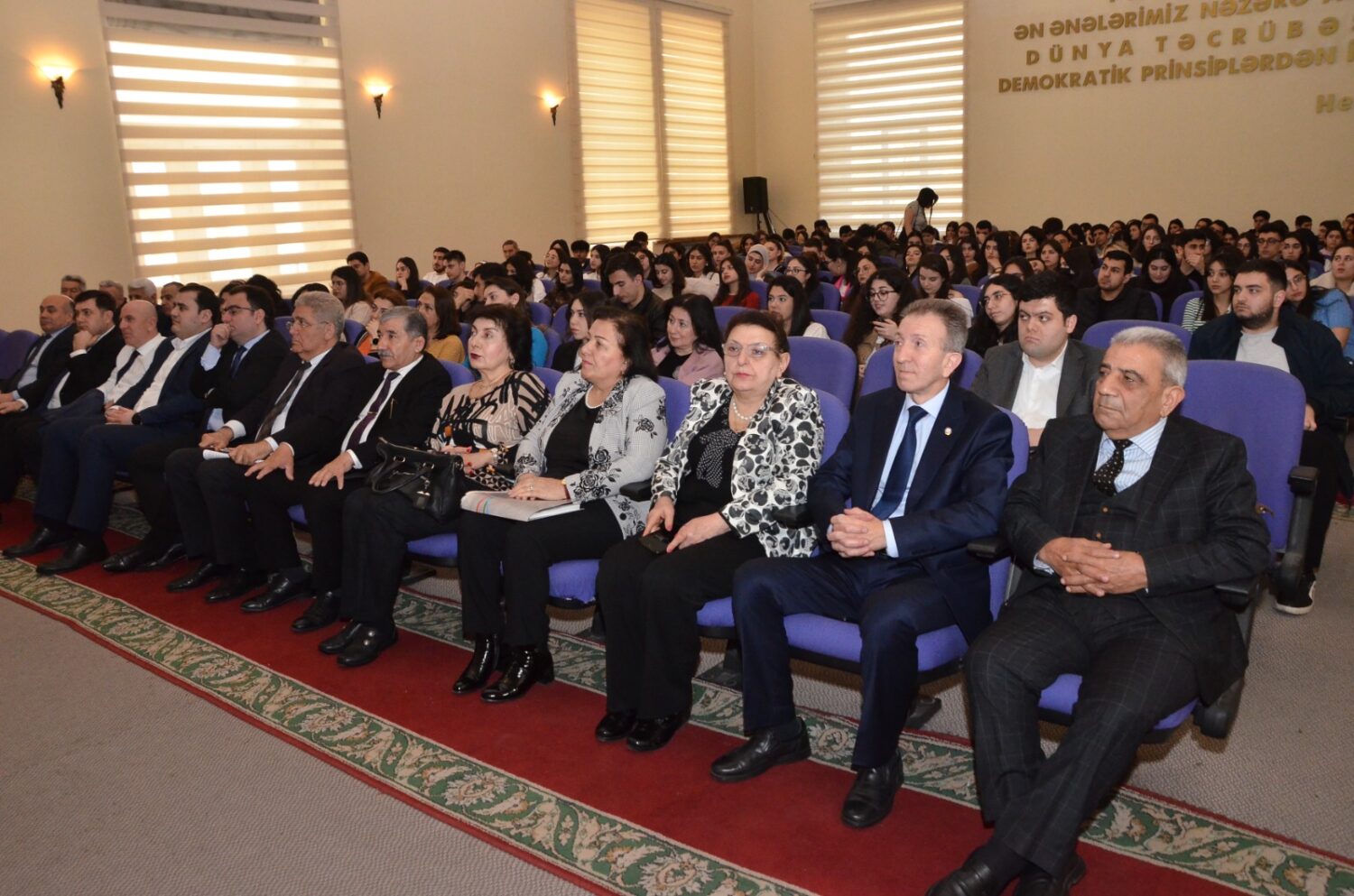
The head of the department, associate professor Firdovsiyya Ahmadova, who opened the event with an introduction, spoke about the policy of ethnic cleansing that took place in the territories of Azerbaijan in 1918, and noted that these genocides were one of the bloodiest tragedies not only in the history of Azerbaijan, but also in the history of mankind due to their cruelty and scale. is one.
Later, the vice-rector of the Academy, Professor A.Z.Abdullayev, made a speech and noted that Armenian usurpers have always carried out genocides, ethnic cleansing and deportation against our people, and lived with the dream of “Great Armenia” throughout history.
Specialist of the Genocide Memorial Complex, Dr. Subhan Talibli, doctor of philosophy, informed the participants of the event about the genocide of Azerbaijanis in Lankaran, Javad and Goychay districts of 1918.
Specialist of the complex, Nazila Mammadova, spoke about the activities of the Genocide Memorial Complex over the past 10 years. It was noted that more than 1 million visitors, including more than 200 thousand foreigners, have visited the Complex.
At the end, the participants of the event were presented with books and booklets about the genocides committed against Azerbaijanis prepared by the Genocide Memorial Complex.
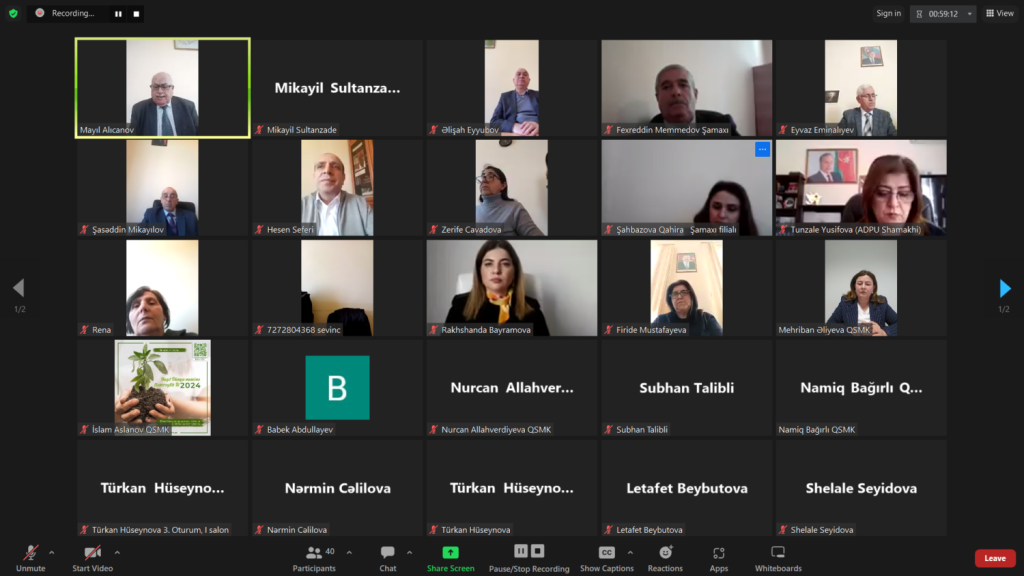
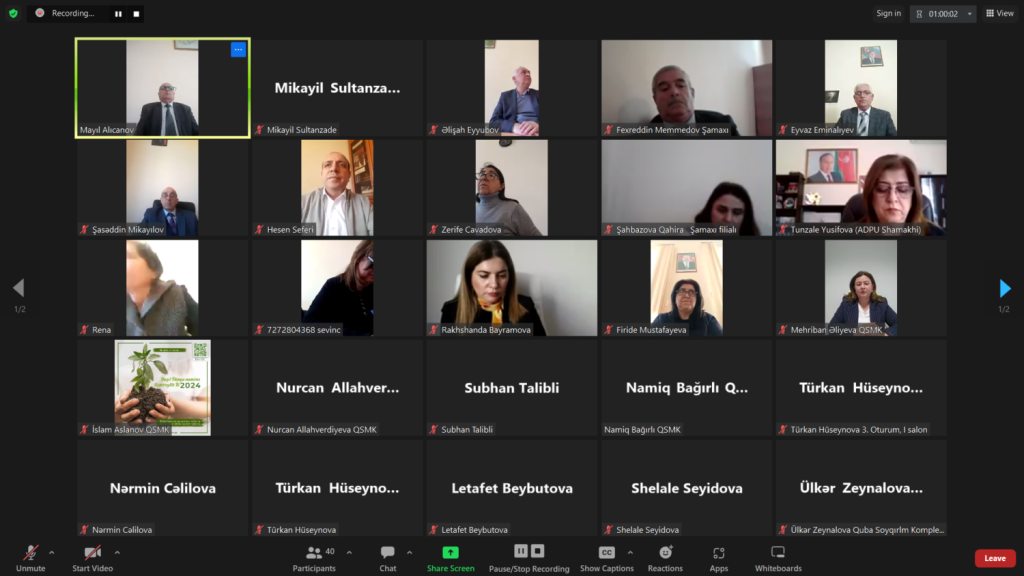








Speaking at the event, the Director of the Complex, Doctor of Philosophy in History Rakhshanda Bayramova stated that Armenians, who throughout history have implemented an aggressive policy, did not turn back from their bloody deeds, and did not give up the dream of creating a “great Armenia from sea to sea”, have subjected our people to genocide from time to time, and with the comprehensive help of their patrons, they made it their goal to buy our land. In the last century alone, the Azerbaijani people were subjected to genocide and deportation accompanied by violations of their rights, inhumane treatment, and acts that humiliate human dignity by Armenian nationalists four times (in 1905-1907, 1918-1920, 1948-1953, 1988-1993). During the massacres of March 1918, Armenians brutally murdered 12 thousand of our compatriots in Baku in three days. The media of that time passed over these events quietly. As soon as the USSR collapsed, the archives of the bloody incidents committed by our hated neighbors Armenians in the recent past were opened, and our people were given information about our bloody history. Armenians committed mass massacres against peaceful civilian Azerbaijanis first in Baku, then in Iravan, Nakhchivan, Ganja, Karabakh, Zangezur, Gazakh and Tbilisi.
At the end, the participants of the event were presented with books and booklets containing the facts of the genocide.












Director of the Complex, Dr. Rakhshanda Bayramova, who opened the event with an introduction, spoke about the policy of ethnic cleansing and genocide carried out by the Bolshevik-Dashnak units in Guba region in 1918 and noted that more than 16 thousand people were killed in Guba region alone as a result of the tragedy. The historian also emphasized that the cases of violence committed in Guba city and villages of Guba district were reflected in the collection of documents consisting of 451 sheets in 3 volumes based on the investigation materials of the Extraordinary Investigation Commission. Speaking later, Elvin Talishynsky, head of the Department of Political and Social Sciences of Azerbaijan University, Doctor of Philosophy in Political Sciences, said that the people of Azerbaijan, who always try to live in peace with neighboring countries, have historically been subjected to the merciless genocide policy of Armenian bandits. Not only in 1918, but also in 1905-1907, as well as in subsequent years, cases of genocide and deportation accompanied by violations of the rights of Azerbaijanis, inhumane treatment, and acts that humiliate human dignity were committed by Armenian nationalists. Speaking later, the expert of the “Genocide Memorial Complex” in Guba city, doctor of philosophy, associate professor Sübhan Talibli reviewed the history of the genocides that took place in the Javad district. It was noted that among the documents of the Extraordinary Investigation Commission regarding the Javad accident, the statement given by Süreyya Dadash gizi, an 18-year-old resident of Khojaly village, can be considered a clear example of Armenian cruelty. The investigators of the commission included the victim’s statement and medical examination documents of Süreyya Dadash girl, who lost all her relatives and found shelter with strangers in another village, with her arm amputated, crippled, sick and weak, as well as her photo as a testimony of Armenian atrocities. At the end of the scientific seminar, which continued with the speeches of the employees of Azerbaijan University and the Memorial Complex, books and booklets containing the facts of the genocide were presented.
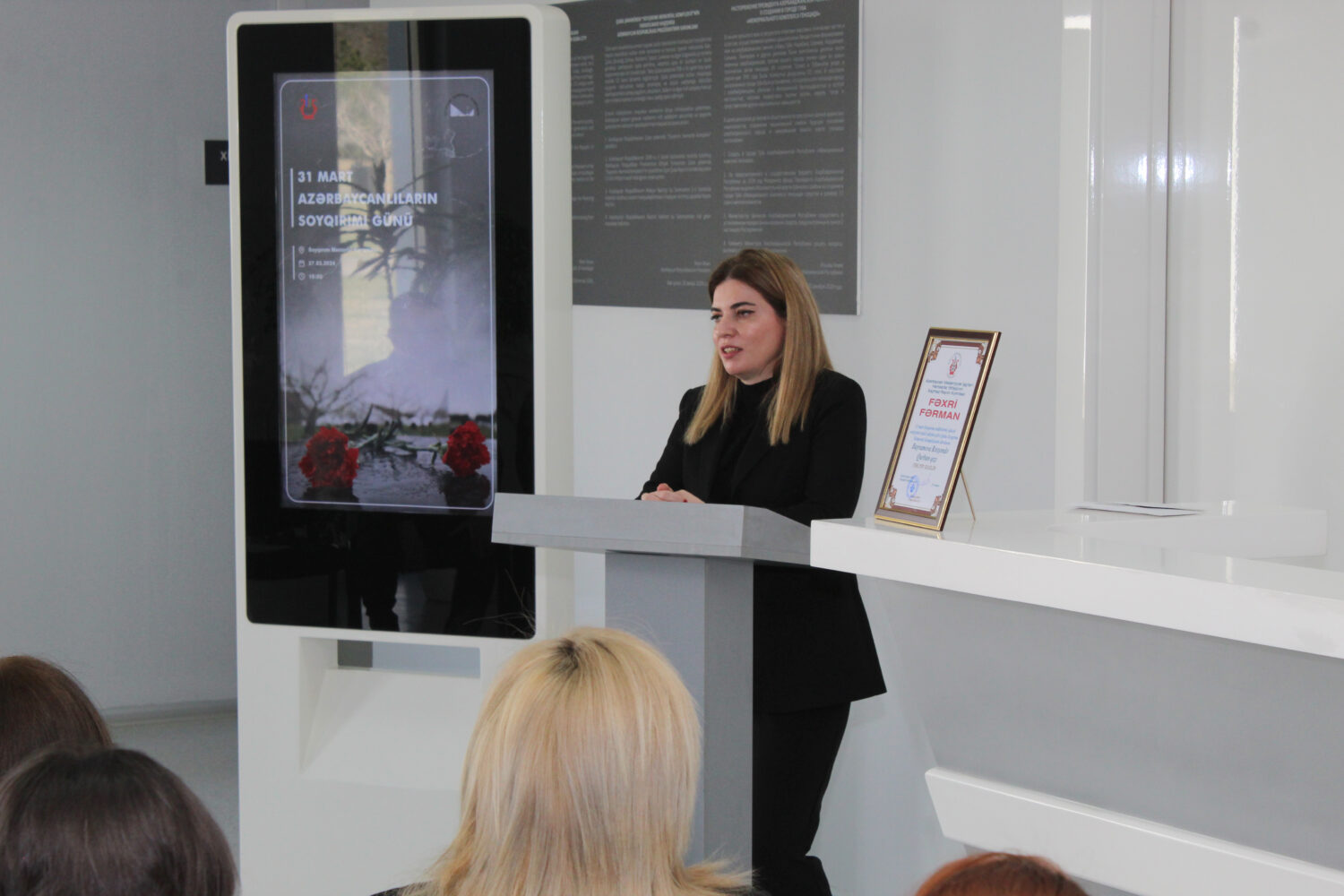
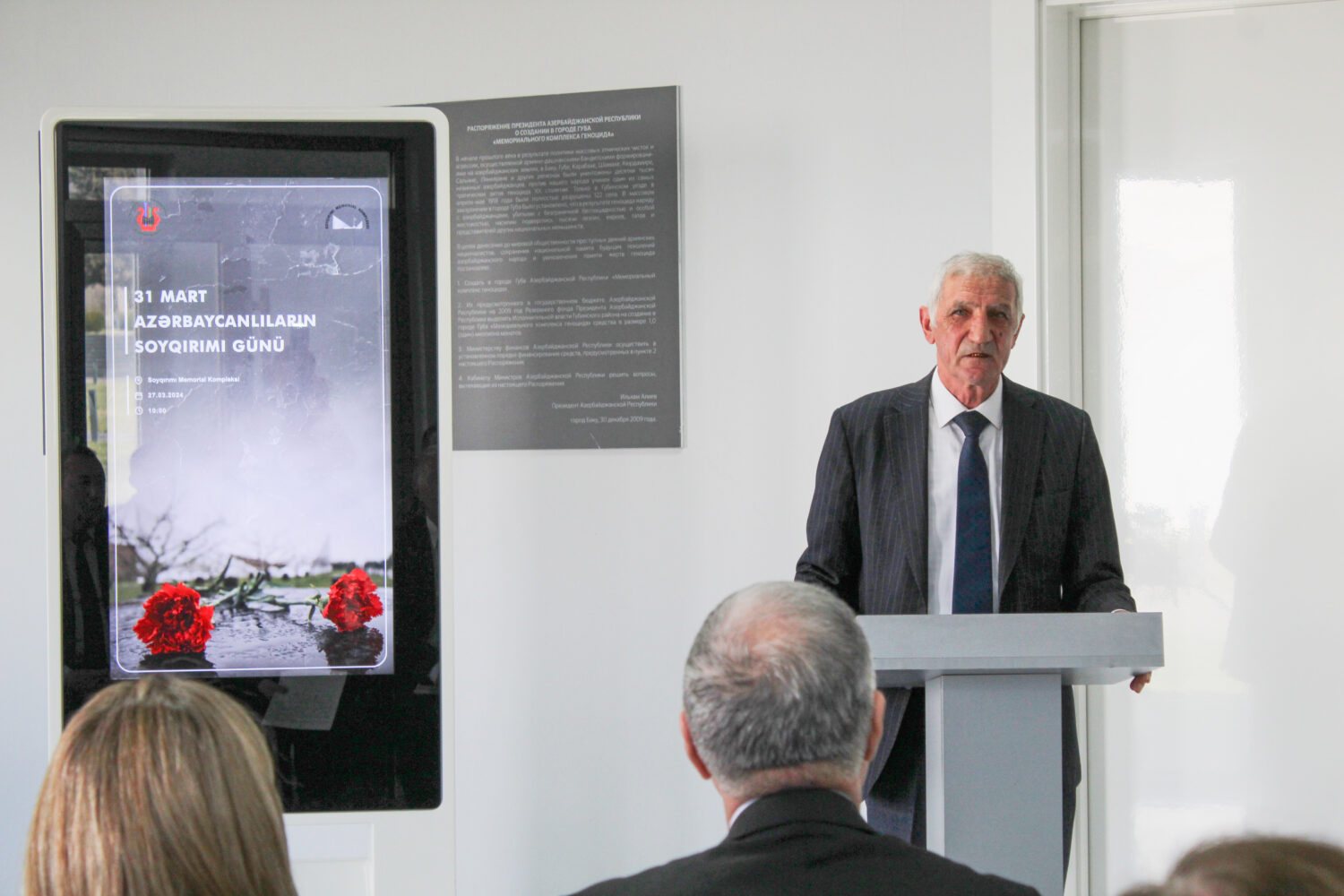
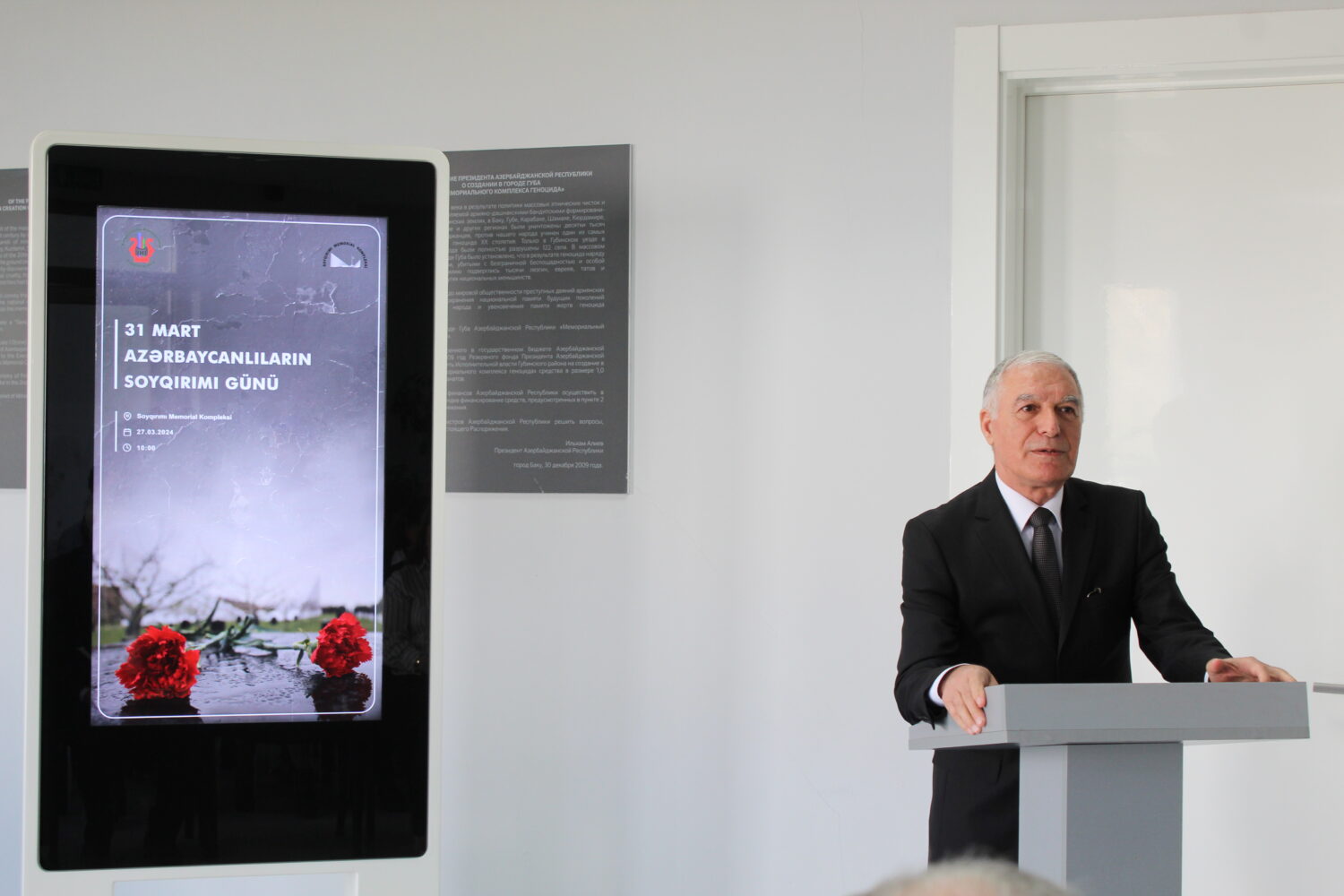
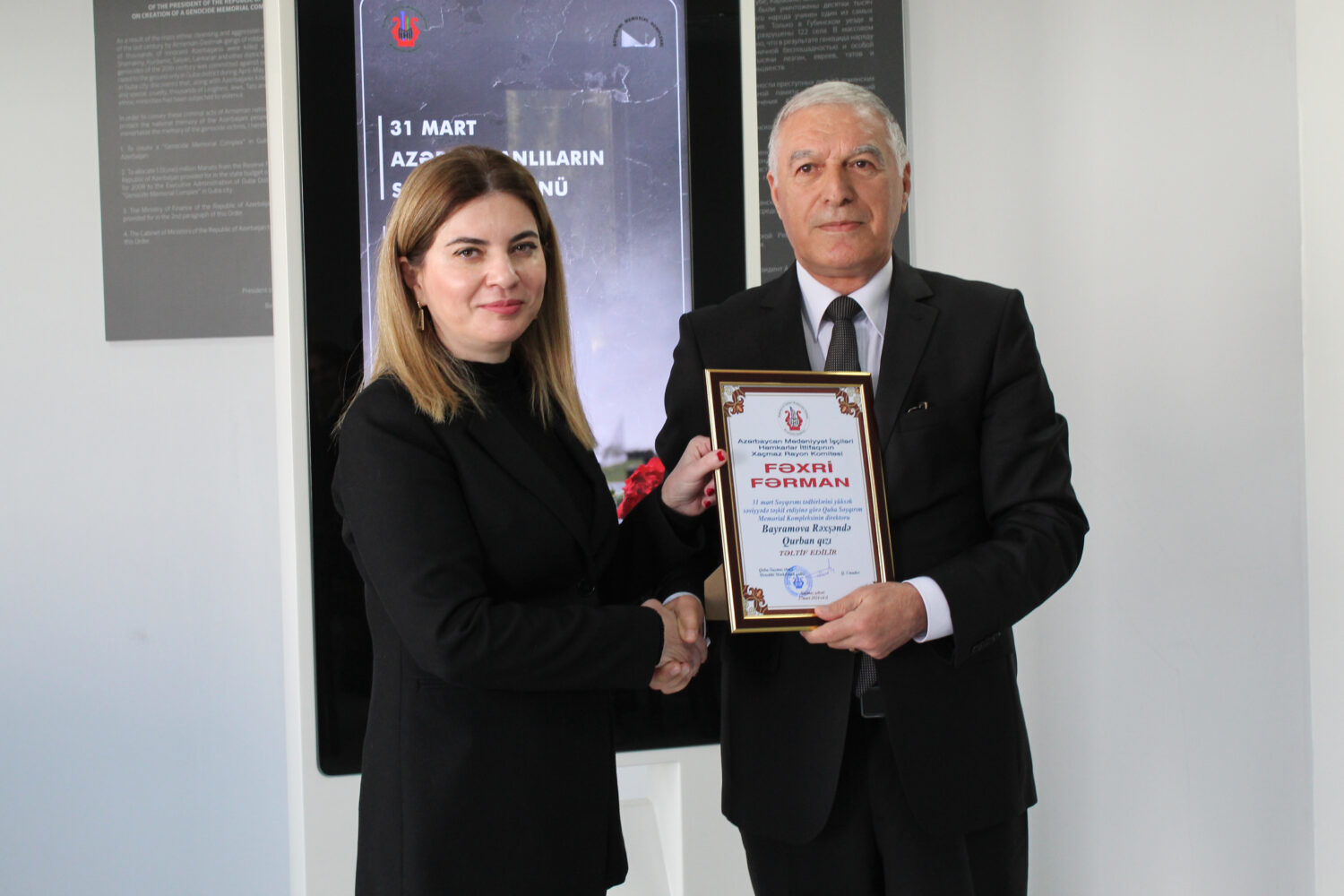
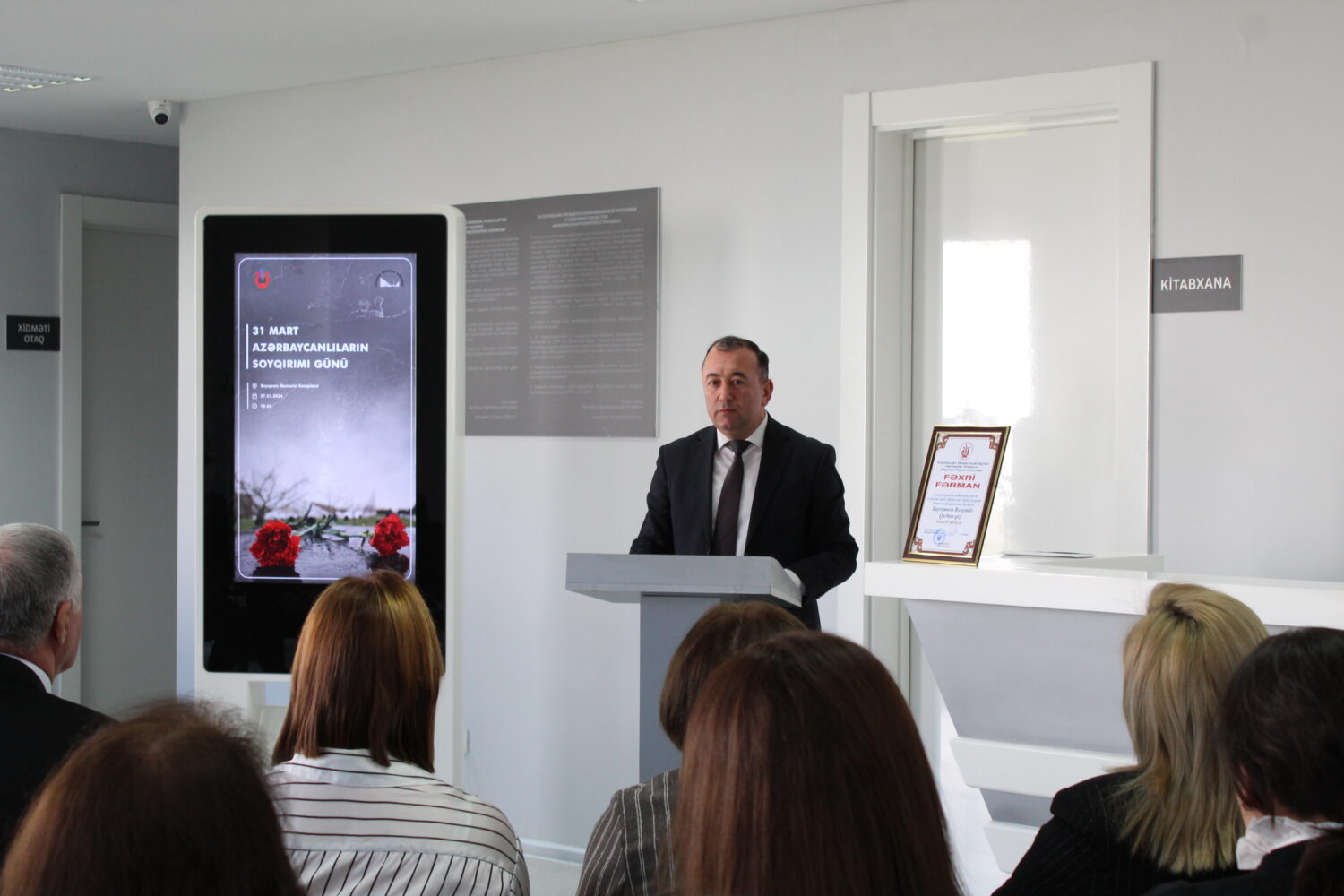
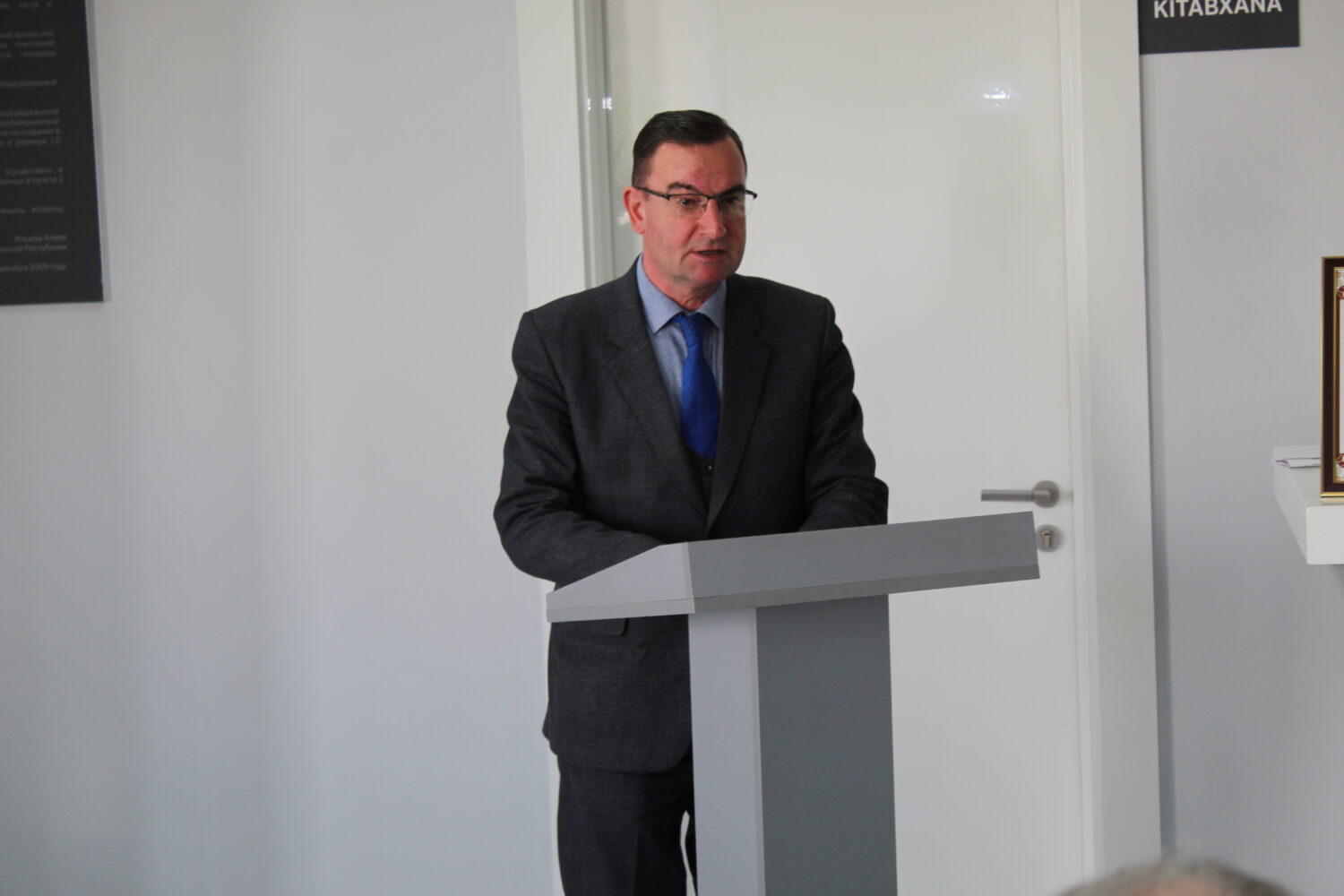
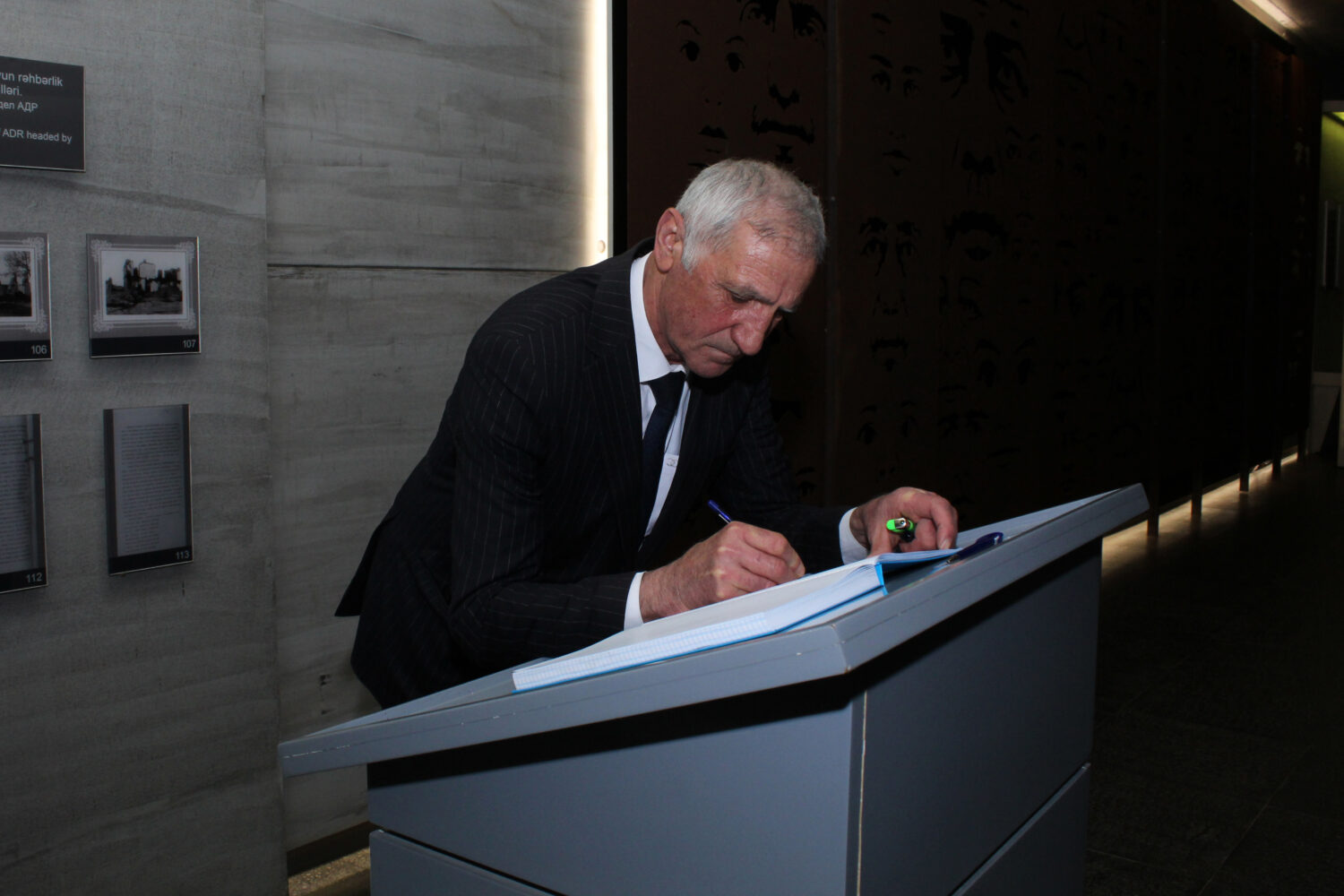
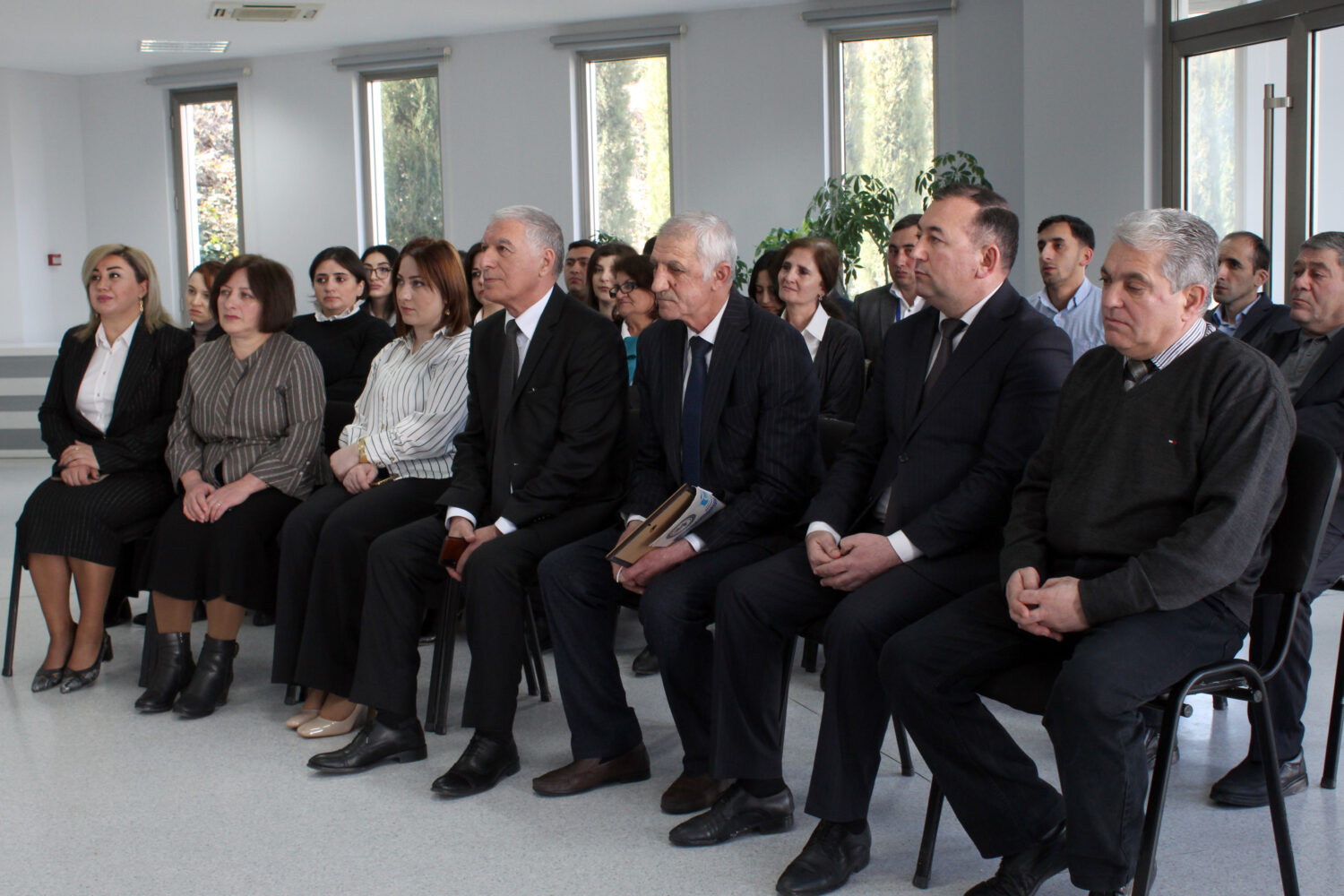
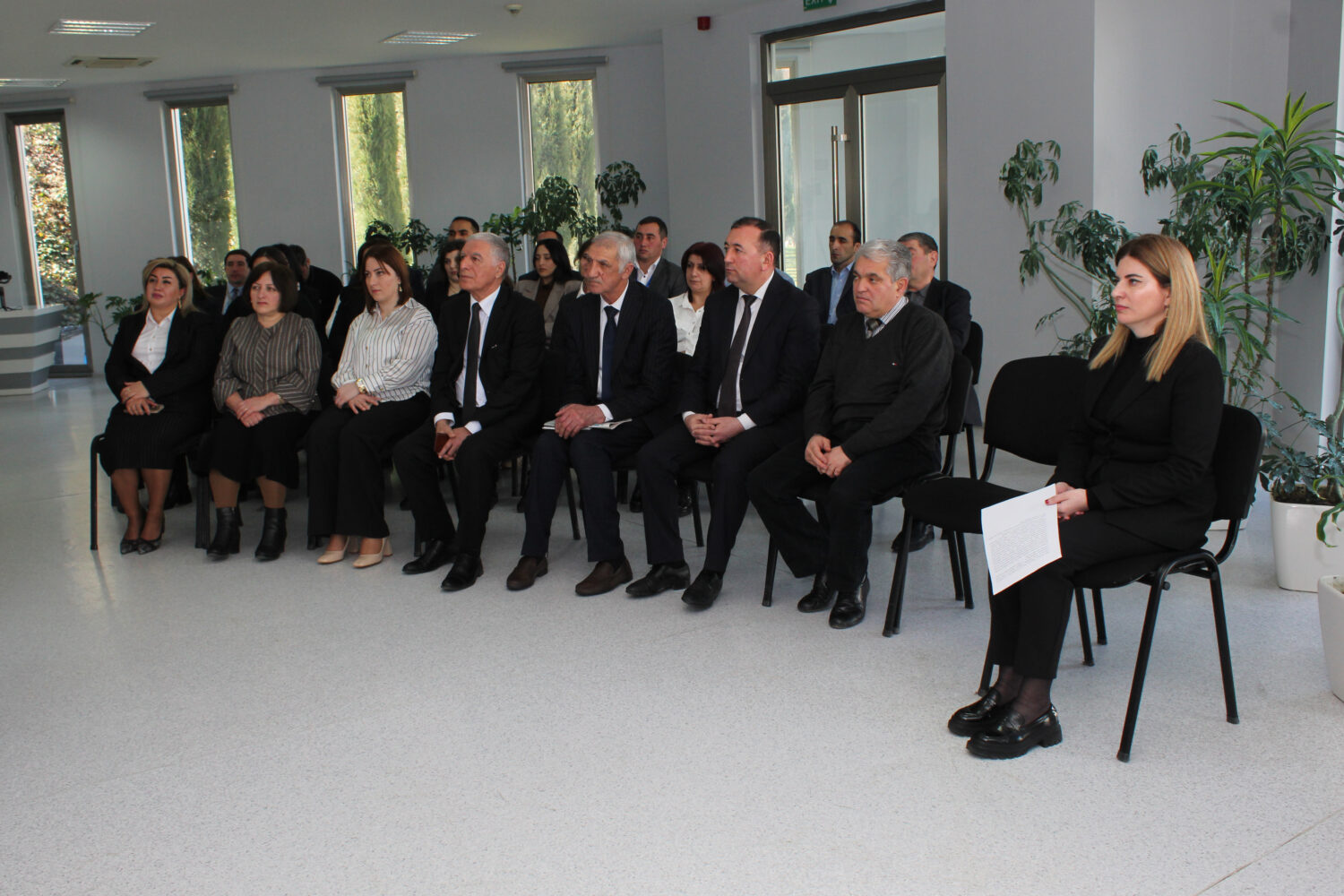
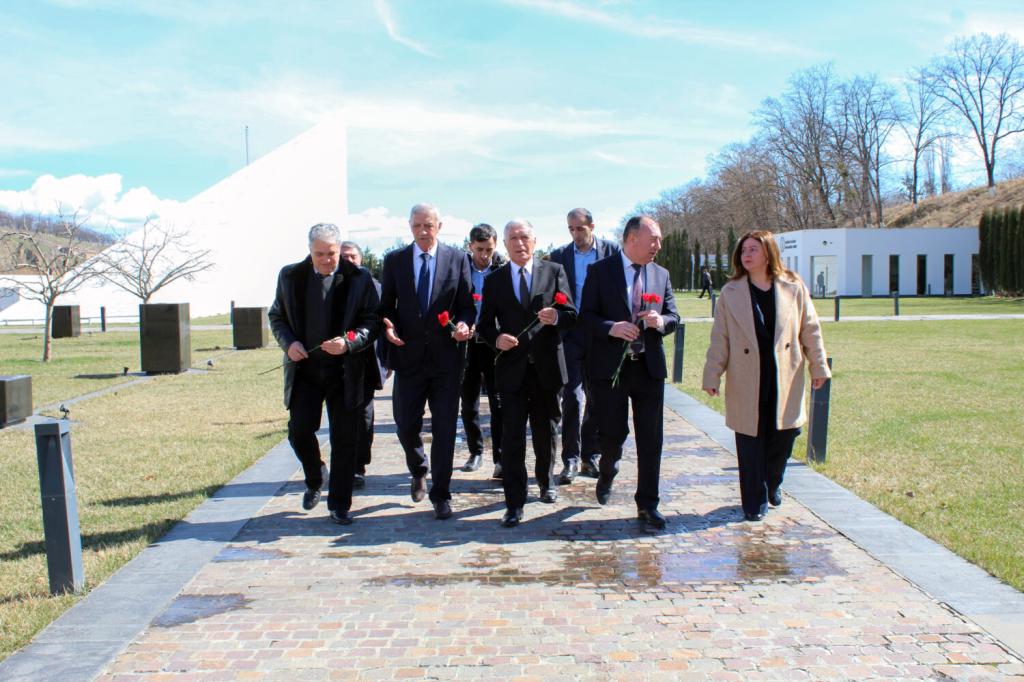

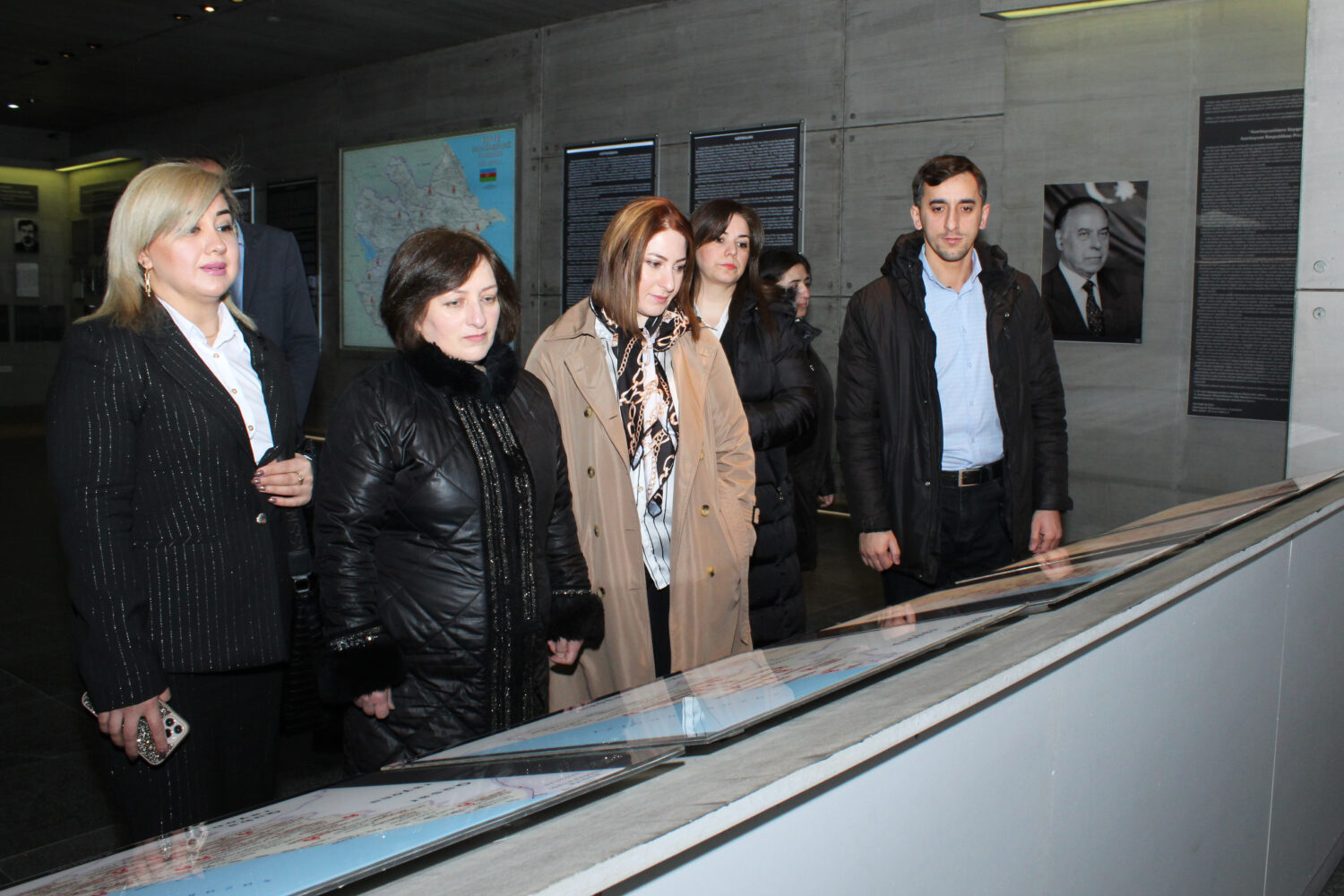
At the event, Director of the Complex, Doctor of Philosophy in History Rakhshanda Bayramova gave a speech and informed about the genocides, ethnic cleansing and deportation policy carried out by Armenians against our people from time to time and said that our hated neighbors lived with the dream of “Great Armenia” throughout history and always eyed our lands. Baku Soviet and Dashnak stated that the massacre committed by Armenian armed groups against Azerbaijanis is written in bloody letters in the history of our nation. Speaking later, the chairman of the Guba district committee, Maharram Hajiyev, and the chairman of the Khachmaz district committee, Garib Umudov, during the genocide carried out by the Armenians against the Azerbaijanis in 1918 in Baku city and in various regions of the Baku governorate, as well as in Shamakhi, Guba, Khachmaz, Lankaran, Zangezur, Karabakh, They emphasized that the Armenian Dashnaks committed bloody massacres in Nakhchivan and other areas and thousands of Azerbaijanis were killed as a result of the genocide.
At the end, the participants of the event were presented with books and booklets containing the facts of the genocide.
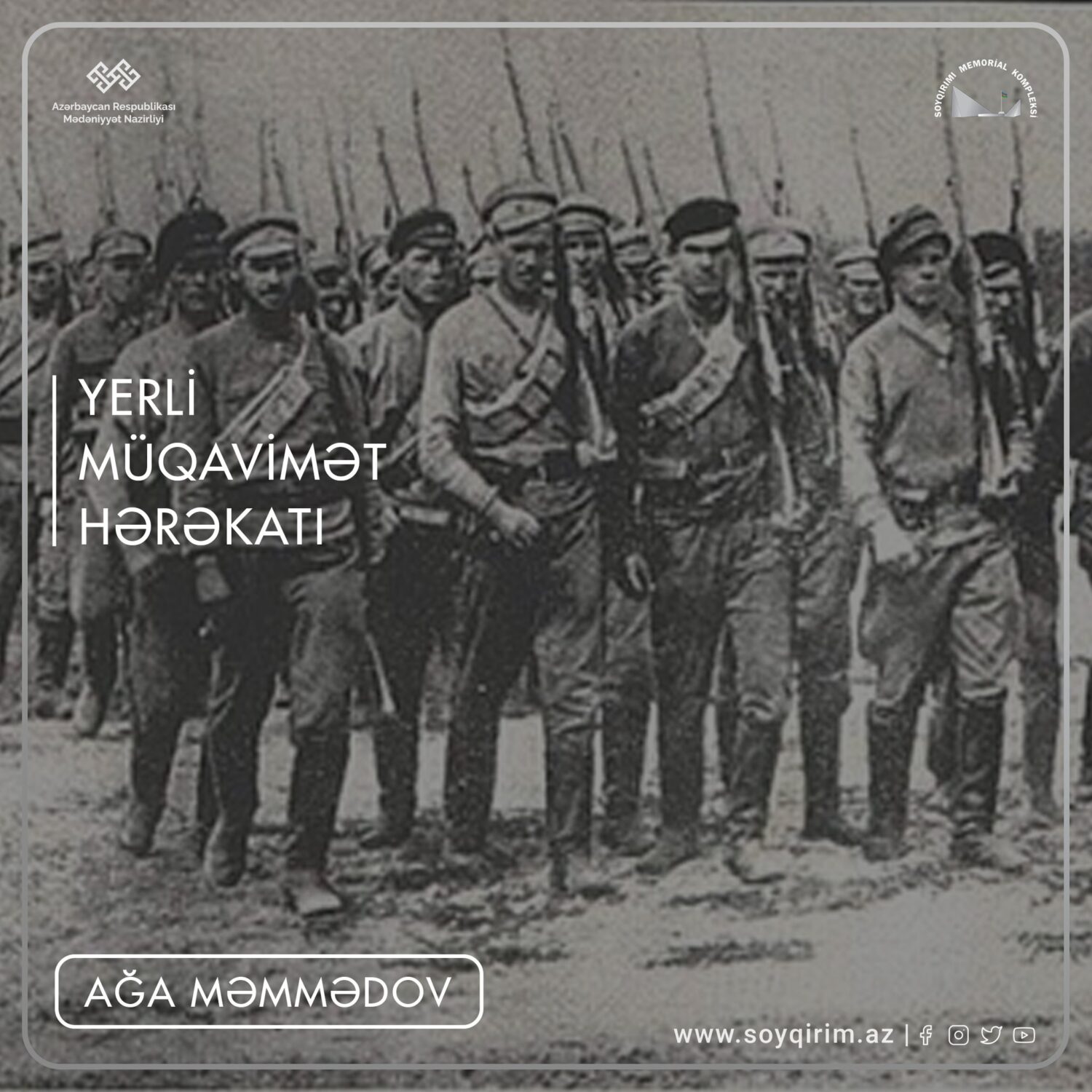
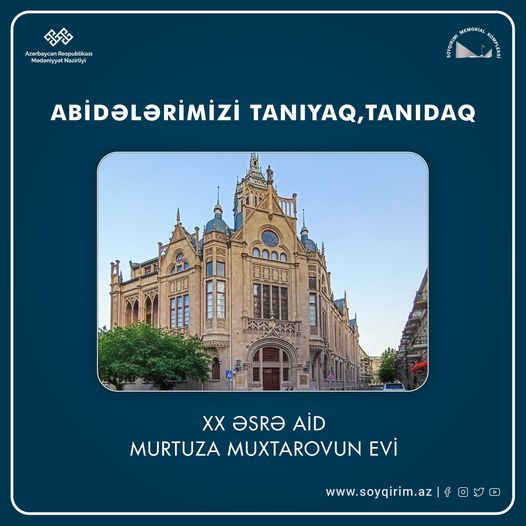
In March 1920, during the Nowruz holiday, Armenians initiated large-scale military operations on various fronts, including Beyuk Vedi, Nakhchivan, Ordubad, Karabakh, and Zangezur, as part of a well-planned strategy. To divert the attention of the Azerbaijani army, engaged in operations alongside insurgent forces in Karabakh, additional troops were deployed from Yerevan to Zangezur. Multiple attacks were launched on Muslim villages. In an attempt to enter the Shusha district, a group of 400 Armenians launched an attack from Gerenzur, targeting the Azerbaijani-populated village of Malkhalaf. However, they were compelled to retreat after sustaining significant losses.
